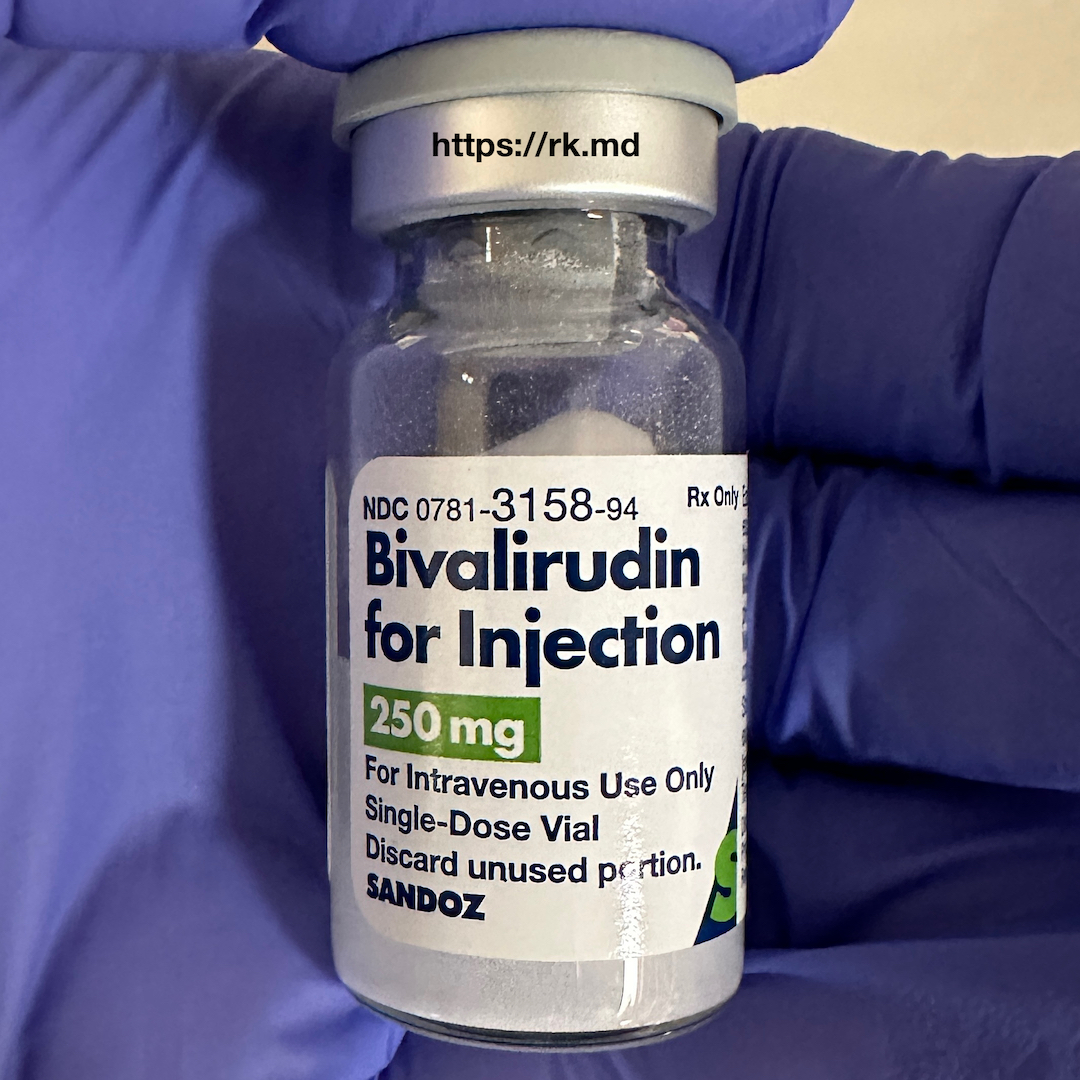Bivalirudin (Angiomax) is an intravenous direct thrombin inhibitor used as an anticoagulant for acute coronary syndrome, mechanical circulatory support, and cardiopulmonary bypass when patients have a contraindication to use heparin (e.g., heparin-induced thrombocytopenia).
The usual dose of bivalirudin is a bolus of 0.75 mg/kg followed by an infusion of 1.75 mg/kg/hr. However, the dosage should be adjusted based on the patient’s renal function and bleeding risk. The most common adverse effects of bivalirudin include bleeding, hypotension, and allergic reactions. Bivalirudin may also increase the risk of stroke in patients with ACS. Therefore, it is crucial to monitor for bleeding and hypotension and to use caution in patients with a history of bleeding or abnormal blood clotting.
Similar to administering heparin in the operating room, I still use activated clotting time (ACT) to gauge the degree of anticoagulation. Although heparin can be reversed with protamine, the only real reversal for bivalirudin is time. Therefore, it’s important to coordinate when to wean the infusion with my surgical colleagues as they approach the end of cardiopulmonary bypass, a major vascular operation, etc.






